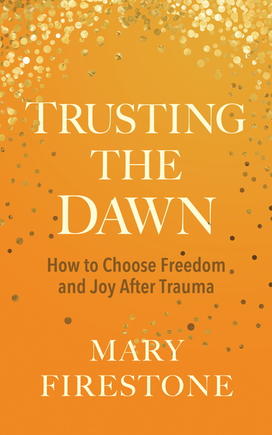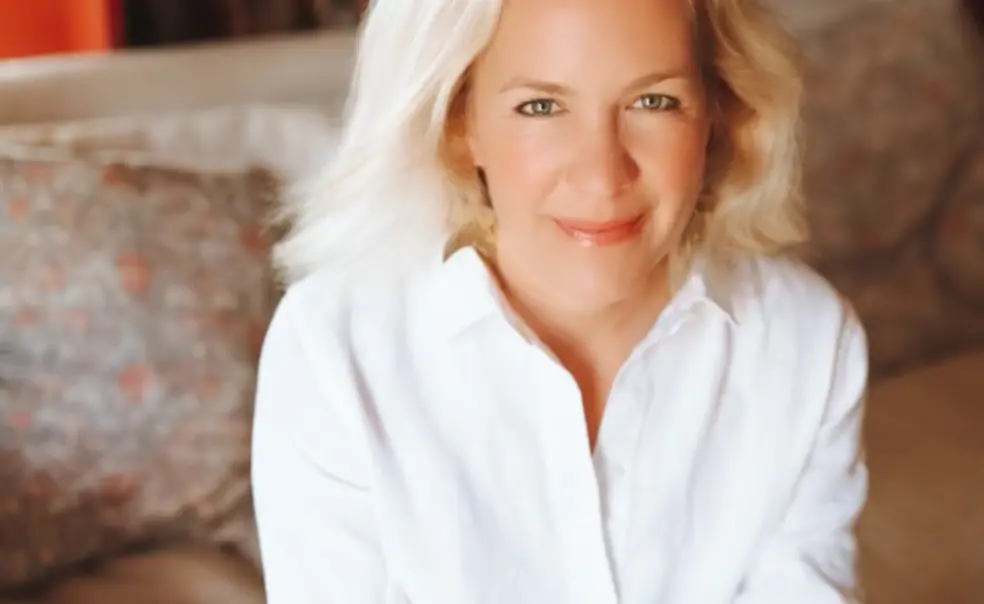Mary Firestone ’99 Encourages Others to Find Hope in Healing
The book: In 2018, Mary Firestone ’99 survived a tragedy. Her home in California was washed away by the Montecito mudslide, where 200 million gallons of rainfall fell in 15 minutes. During the catastrophe, Firestone was pregnant and trapped in her bathroom. She survived and recounts the experience and her journey of healing in Trusting the Dawn (Sounds True). The book is meant to serve as an inspirational guide to help others turn trauma into moments for new beginnings. Drawing on her own experience and her background in clinical psychology, Firestone offers readers a holistic tool kit to get on the other side of difficult life events.

The author: Mary Firestone ’99 earned her undergraduate degree from Princeton in English and has a master’s in clinical psychology from Pepperdine University. In 2012, along with her sister, they founded Firestone Sisters to provide others with healing and growth opportunities. She currently lives in California.
Excerpt:
Introduction
It was more than five hours before I was rescued from my bathroom countertop, where I huddled, wet and pregnant, shaking from cold and fear, trapped by millions of gallons of mud. I didn’t know how many hours I’d endure in this soggy, frigid tomb; I did know they seemed both interminable and fleeting. For much of that time, I thought my husband and four-year-old son had been swept away in a river of mud and debris and that my own death was imminent.
In mere moments, the tidal wave of mud had become too high and toxic for me to stand in, so I had crawled up on the countertop. Barefoot, in thin cotton floral pajamas, I looked out my bathroom window at my world, destroyed. I thought my life was over. There had been a deafening roar as boulders the size of tanks tumbled in a torrential river of mud down the mountain above my home. On my left, I had watched this river crumple a neighbor’s house and hurtle it down the hill away from me. On my right, the majority of my house had twisted backward and washed away at twenty miles per hour. Not only was my living room gone but my panic surpassed anything I’d ever known when I realized the window looking back at me was that of my four-year-old son Ever’s bedroom. And I thought he was in it.
--
On the heels of the Thomas Fire, which burned 282,000 acres over a period of several weeks in Ojai, Ventura, and Santa Barbara, California, came the Montecito mudslide of 2018. Nearly 200 million gallons of rainfall dropped in fifteen minutes in a record-breaking, middle-of-the-night storm, and the mountain gave way.
The mudslide killed twenty-three people. More than 150 people were injured, four of them critically. More than 450 homes and structures were damaged. A thirty-mile stretch of the 101 freeway was closed for almost a month because it was covered in several feet of slick, toxic mud that had to be cleared. A toddler and a teenage boy were never found. Destroyed cars had to be plucked from trees. Enormous boulders had to be jackhammered and removed. Houses, businesses, groves of protected oaks, and historical landmarks had to be dug out of the mud and restored. Many were lost forever. The beaches along the whole coast of Southern California were toxic and debris-covered for months. Full restoration of all the creeks and roads in Montecito would take two years; rebuilding and repairing the structures continue to this day. And my home was right at ground zero.
Accepting the Invitation
Can you imagine that the worst thing that has ever happened to you might turn out to be a gift in disguise? Do you know that trauma, in whatever form it slayed you—childhood abuse, betrayal, divorce, the loss of a child, a diagnosis of terminal illness, a natural disaster—could be your initiation into a fuller, more illuminated and joyful life?
Trauma results from a moment, or a series of moments, in which we feel vulnerable, helpless, and weak; in which no escape seems possible; and in which, at some level, we are terrified we will not survive. This can happen even when our own safety is not directly at risk, but we are witnessing someone else’s trauma. According to the US Substance Abuse and Mental Health Services Administration, trauma “results from an event, series of events, or set of circumstances experienced by an individual as physically or emotionally harmful or life-threatening with lasting adverse effects on the individual’s functioning and mental, physical, emotional, or social well-being.” To put it more simply and more inclusively, trauma is the Greek word for “injury.” For our purposes, trauma is an event or injury that throws us off balance. An estimated 61 percent of men and 51 percent of women report having at least one traumatic event in their lifetimes. These numbers are undoubtedly grossly under-representative because trauma includes all kinds of abuse, bullying, betrayal, near-death experiences, losses, combat or street violence, incest or rape, natural disasters, and pandemics.
Even as survivors carry with them the aftereffects of uncleared and unhealed trauma, many might not even recognize or define what has happened to them as traumatic. Some might know internally they were traumatized but don’t feel safe to say so out loud. They might hold back because of shame (about sexual abuse, for instance), fear of repercussions or of being perceived as weak (as is common for men or for those traumatized in the line of duty), or lack of a safe person to tell.
I recognize that in the wake of trauma, during and sometimes even after healing, we can feel frustrated or even angry about considering the point of view that what we have suffered can lead anywhere good. It’s okay if you don’t feel that way yet. I’ve been there, and I empathize. Just know, if I’ve been there and can get here, so can you. It takes time, and it also takes healing.
As I sought my own healing, I found ways to heal from trauma thoughtfully and meaningfully, to return to harmonious well-being, and to find growth and resilience after such an event. I found skillful and compassionate healers and guides, I discovered modalities proven by mainstream psychological and medical research, and I made leaps of faith with methodologies that at first seemed far-fetched but that sometimes led to profound posttraumatic growth.
In the weeks and months and years that followed the mudslide— although I was sometimes overcome with fear during bad weather, feelings of hopelessness that I would ever have my life “back together,” and pain both physical and emotional—I also experienced blessings, growth, and depth I never could have imagined. My connection to prayer and manifesting desires became increasingly powerful. Gifts, literal and figurative, appeared. My relationships became stronger and deeper or fell away. Ultimately, my appreciation for life and my mission to enjoy it all and uplift others was fortified and crystallized. I chose to stride into this complex and growing field to find my way not only to surviving and being okay but to thriving, growing, and transcending. I began to write about my findings as a way to help others not only find their way back from trauma but transcend it.
The reality that the destruction of my world as I knew it would be a triumphant epiphany and invitation to live more rapturously and dynamically was a seed that would not be revealed for some time. I wrote this book to share how I transformed the darkness into light in order to encourage and ignite readers to break free from the heavy residue trauma can leave behind.
From Trusting the Dawn by Mary Firestone. Reproduced by permission of the author. All rights reserved.
Reviews:
“Mary’s vulnerability in sharing her healing journey from trauma to thriving is an absolute inspiration. In Trusting the Dawn, she provides valuable resources for anyone touched by trauma to effectively heal and transform.” — Kelly Noonan Gores, writer, director, and producer of Heal.
“This book is medicine for anyone who wants to free their mind, body, and soul from the past.” — Dr. Joe Dispenza, author of You Are the Placebo












No responses yet